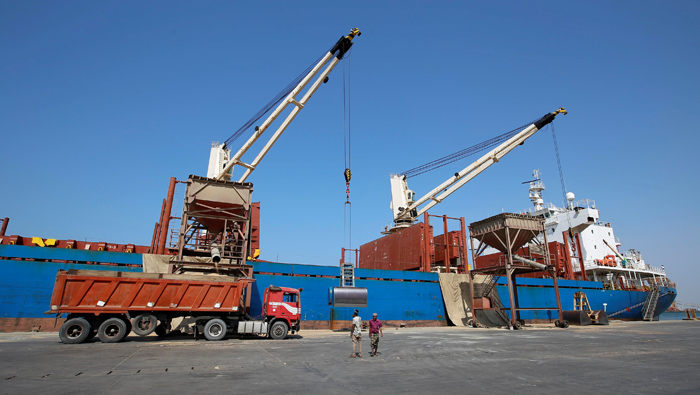
Rimbo(Sweden): The UN has asked Yemen's Houthi rebels to withdraw from Hodeida as part of a ceasefire deal placing the flashpoint port city under joint control, according to a document seen by AFP on Monday.
The document, verified by sources in both the government and rebel delegations at UN-brokered talks in Sweden, stipulates that the Saudi-led military coalition fighting the Houthis would cease an offensive on the rebel-held city in exchange for a Houthi withdrawal.
The area would then be put under the control of a joint committee and supervised by the United Nations. The document does not propose the deployment of UN peacekeeping troops.
The government was expected to issue a formal response to the proposal "soon", state representative Hadi Haig said.
"The special envoy's paper is under study. The response will come soon, God willing," Haig said on the sidelines of the talks.
Houthi representative Salim Al Moughaless said the rebels would only consider a withdrawal as part of a full political solution to the conflict.
"The discussion is long and ongoing," Moughaless said.
A UN official in Rimbo was not immediately reachable for comment.
Yemen's Saudi-backed government and the rebels convened in the rural village of Rimbo, Sweden on Thursday for what is expected to be a week of talks on a war that has killed upwards of 10,000 people in less than four years.
The Hodeida proposal is a significant step closer to the demands of President Abedrabbo Mansour Hadi, whose government was driven out of the capital Sanaa in a rebel takeover in 2014 that included the seizure of Hodeida -- the most valuable port in a country now on the brink of famine.
The Red Sea city has since June been at the heart of a government offensive. Its destruction would worsen the humanitarian crisis in Yemen, where the UN estimates 14 million people face starvation.
Shipments to Hodeida, including humanitarian aid, have been severely restricted by the coalition. Houthi fighters are now ensconced in residential neighbourhoods to hold off government forces.
"Military operations are ongoing in different areas," coalition spokesman Turki Al Maliki told reporters in Riyadh as the Sweden talks entered their fifth day.
"The rebels have fortified their defence lines inside Hodeida city," he said. "We are working to create safe humanitarian corridors from Hodeida to Sanaa."
The UN has regularly urged the Saudi-led coalition to suspend operations in the densely-populated city, home to 600,000 people and a traditional conduit for 90 per cent of food imports to Yemen.
The government accuses the rebels of smuggling arms from Iran through Hodeida and has demanded the rebels withdraw unilaterally from the area. The Houthis refuse.
Both parties have said they would accept UN supervision of the port if it were under their sole control.
Speaking on condition of anonymity, a UN official in Rimbo on Saturday said Hodeida had proved the "most difficult" issue at the meetings, the first since more than three months of talks collapsed in 2016.
The Houthi takeover of Hodeida sparked the intervention of Saudi Arabia and allies on behalf of the government in 2015, widely seen as a turning point in the war.
Among the other issues under discussion in Sweden are humanitarian corridors, the reopening of the defunct Sanaa international airport and the fate of Taiz, Yemen's third largest city that has been the scene of some of the country's most intense battles.
A prisoner swap has however been agreed between the two parties.
The two sides are also looking at a draft UN proposal on the southwestern city of Taiz, under the control of pro-government forces but besieged by the rebels.
The draft stipulates an unconditional ceasefire, a joint working group that includes the UN to monitor the ceasefire, and the reopening of all roads and Taiz airport for humanitarian operations.